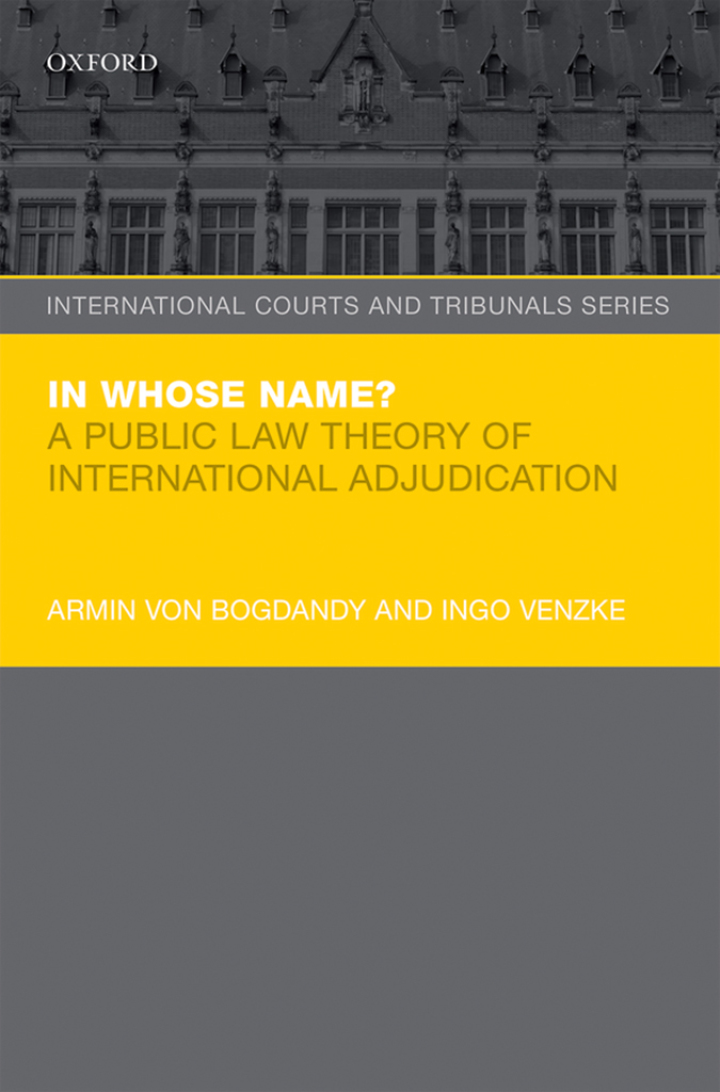In Whose Name? A Public Law Theory of International Adjudication
$21.12
Attention: This is just ebook, Access Codes or any other Supplements excluded! / File Delivery: Sent Via Email within 24 hours!
SKU: 7331cd6a0c77
Category: Law Textbooks
Description
-
Author(s)Armin von Bogdandy; Ingo Venzke
-
PublisherOUP Oxford
-
FormatPDF
-
Print ISBN
9780198717461, 0198717466 -
eText ISBN
9780198717461, 0198717466 -
Edition
-
Copyright
- Details
The vast majority of all international judicial decisions have been issued since 1990. This increasing activity of international courts over the past two decades is one of the most significant developments within the international law. It has repercussions on all levels of governance and has challenged received understandings of the nature and legitimacy of international courts. It was previously held that international courts are simply instruments of dispute settlement, whose activities are justified by the consent of the states that created them, and in whose name they decide. However, this understanding ignores other important judicial functions, underrates problems of legitimacy, and prevents a full assessment of how international adjudication functions, and the impact that it has demonstrably had. This book proposes a public law theory of international adjudication, which argues that international courts are multifunctional actors who exercise public authority and therefore require democratic legitimacy. It establishes this theory on the basis of three main building blocks: multifunctionality, the notion of an international public authority, and democracy. The book aims to answer the core question of the legitimacy of international adjudication: in whose name do international courts decide? It lays out the specific problem of the legitimacy of international adjudication, and reconstructs the common critiques of international courts. It develops a concept of democracy for international courts that makes it possible to constructively show how their legitimacy is derived. It argues that ultimately international courts make their decisions, even if they do not know it, in the name of the peoples and the citizens of the international community.
Related products
-

Commercial Arbitration in Sweden 3rd Edition
Rated 0 out of 5$146.25 Add to cart -

50 Years of Central Banking in Kenya
Rated 0 out of 5$40.62 Add to cart -

Constitutional Adjudication in Africa 1st Edition
Rated 0 out of 5$45.50 Add to cart -

Challenges for Humanitarian Intervention 1st Edition Ethical Demand and Political Reality
Rated 0 out of 5$27.62 Add to cart

